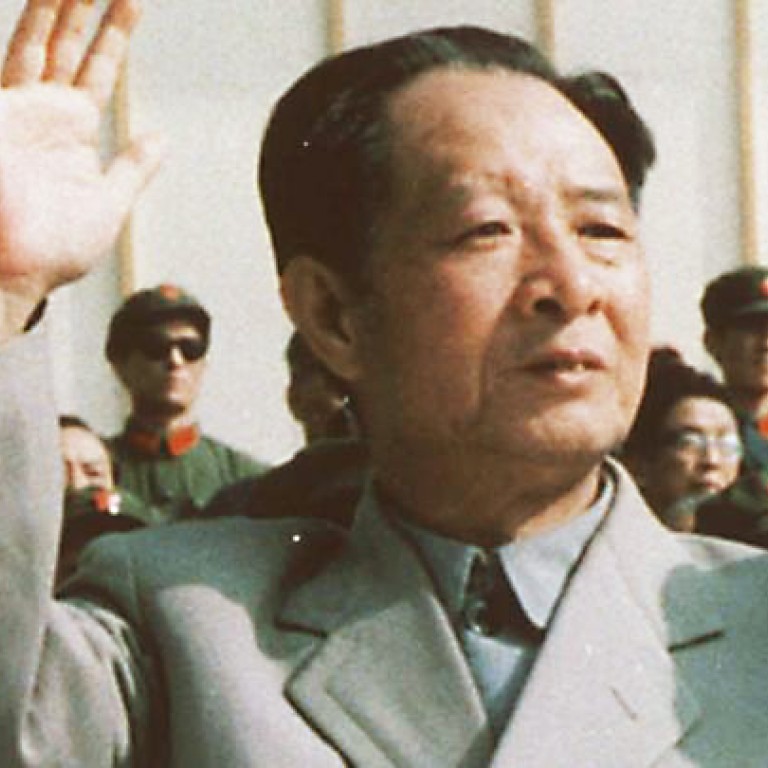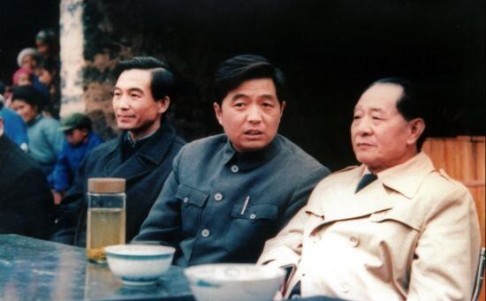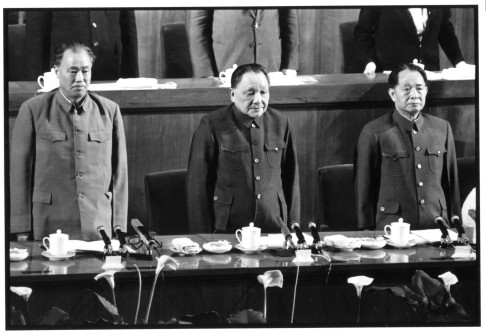
Update | Online censorship rolled back on 25th anniversary of death of reformist leader
Days after Hu Jintao’s visit to Hu Yaobang’s former home met with a media blackout, Weibo users enjoy near-uncensored opportunity to mourn the death of the famous reformist leader
The Chinese government on Tuesday took a more tolerant stance to online censorship on the anniversary of the death of former Communist Party leader Hu Yaobang, whose death 25 years ago today helped spark the Tiananmen Square pro-democracy protests.
Messages of remembrance for the former Communist Party general secretary of the 1980s were widely circulated on China’s largest microblogging site, Weibo, a social media machine prone to blocking information deemed sensitive by the government.
China’s largest news portals separately rolled out modest coverage of the remembrance of the political figure long regarded as a sensitive subject by the ruling Chinese Communist Party.
Photos of Hu accompanied by his protegés Hu Jintao and Wen Jiabao, who later become Chinese president and premier respectively and remained in office for a decade, were widely circulated on the internet. A collection of senior party officials’ past comments on Hu were posted on 163.com, one of the largest news portals in China.
Hu rose to power and assumed the position of general secretary of the Communist Party in the early 1980s. His efforts to encourage officials to make governance more transparent and to loosen economic controls won him the reputation as a pragmatic reformer.
But he was forced to resign amid growing pressure by conservatives within the party in 1987. His death two years later sparked events that lead to the Tiananmen Square protests and the subsequent bloody crackdown by Chinese authorities.

Last Friday, news reports of retired Chinese President Hu Jintao paying a rare visit to Hu’s former residence in Hunan province were met by a heavy media blackout. Internet pages covering the event were taken down or blocked across mainland China.
“The party’s monopoly of history means that it must not allow scope for its version of history to be challenged,” said Steve Tsang, director of the China Policy Institute at the University of Nottingham.
By contrast, the tolerance shown on Tuesday by Chinese censors towards the mourning of Hu online was surprisingly liberal, with searches for his name being freely accessed with a degree of interference previously unseen.
However, internet searches for “June 4th”, the date synonymous with the Tiananmen Square crackdown, and “Zhao Ziyang” – the name of Hu’s right-hand successor who was politically purged after showing sympathy for the protesting students – remain blocked by state censors.
Online searches for these terms are met with a message that reads: “According to relevant regulations and policies, these search results cannot be displayed.”
“It does seem that the Weibo/state censors are taking a ‘management’ rather than a ‘censorship’ approach,” Jonathan Benney, a Chinese Studies scholar at Macquarie University, said in an e-mail exchange with on Wednesday.
He noted while purely descriptive posts about Hu are being promoted and minor criticisms seem to be going through the censors' nets on Tuesday, people still cannot search for other similarly ‘sensitive’ phrases.

Zhang Lifan, a historian and political commentator, said “The Chinese government relaxed media controls on Hu in a conciliatory move towards those who remember him as a reformist. It is used as a way to maintain social stability.”
“Hu’s image as chief of an honest administration, his down-to-the earth character and [his role of] a reformist remain very positive among the public. It embodies some of the idealistic impressions of Chinese Communist Party,” Zhang, who attended the funeral of Hu in 1989, told South China Morning Post on Tuesday.
He added that Hu was not directly involved with the pro-democracy movement. “Therefore, his case is different from that of Zhao Ziyang.”
Despite authorities rolling back its censorship on Tuesday, not all posts and information about Hu escaped media controls.
On the official Weibo account of the Chinese-language website, an exclusive interview with Hu’s son recalling his father published on Tuesday morning was deleted by Weibo less than 40 minutes after it was published online.
Several other posts advocating greater reforms and the reining-in of corruption in the name of the anniversary were taken down by the popular micro-blogging site, according to freeweibo.com, an overseas website that tracks the posts that are censored by the Weibo server.
Weibo even took down a post on its own official news account about Hu Jintao paying tribute to Hu during his visit to his former residence on Monday. The next day it published a succinct message noting Hu’s anniversary.

